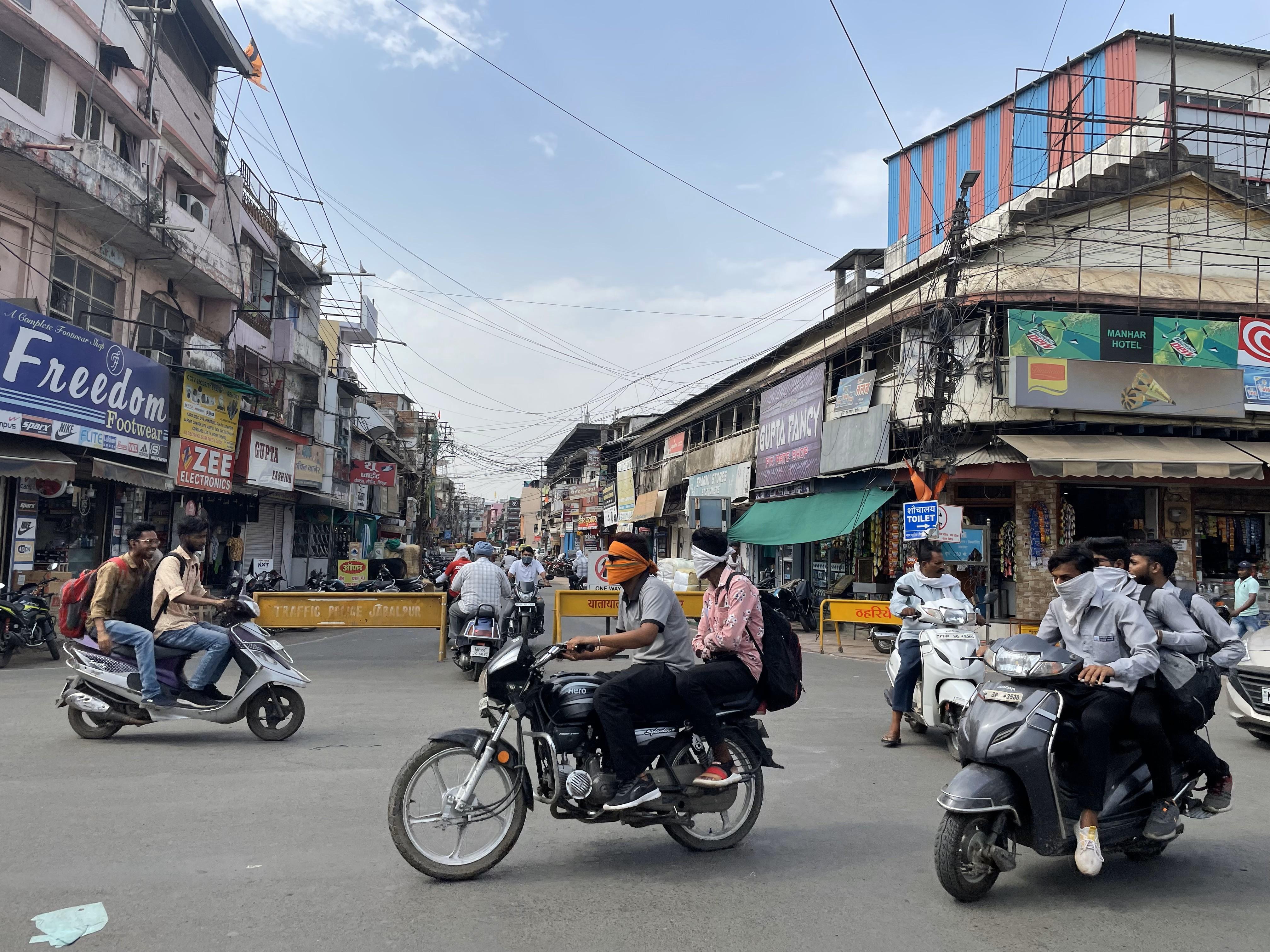From the Streets Up: New Project Tackles Urban Inequality in India’s Climate Action

India is facing the twin challenges of climate change and ongoing growth of its urban population. The pressures both challenges create play out first and foremost on city streets. They are places where millions of often very poor people try to earn a living while being exposed to extreme heat, droughts, and floods. Thanks to funding from the British Academy’s Knowledge Frontiers: International Interdisciplinary Research programme, the collaborative research project Just Transitions on Indian Streets (JusTIS) will examine how Indian cities can tackle climate change in ways that are fair, inclusive, and responsive to the realities of street vendors, gig economy workers and autorickshaw drivers.
Just Transitions on Indian Streets (JusTIS), will look to prioritise the voices and experiences of workers who earn a living on India’s streets and are disproportionately bear the risks posed by climate change. Despite their central role in urban life, these workers are rarely consulted in climate and infrastructure planning, leaving their knowledge and everyday strategies for coping with extreme heat, drought or flooding overlooked. These exclusions are to a large degree grounded in inequalities of caste and religion.
Many workers on the streets of Delhi, Kolkata or Bengaluru struggle not only for survival but also for dignity, visibility, and a rightful place in the city. With colleagues in India, Tim Schwanen and Gaurav Mittal will foreground those workers’ perspectives, build long-term networks of solidarity, and place the workers’ current predicament in its historical and geographical context. This will enable them to contribute to more inclusive and just approaches to climate governance in Indian cities.
Tim says: ‘By combining historical research with grassroots engagement and through comparative case studies in Delhi, Kolkata, and Bengaluru, JusTIS will work with worker unions, civil society organisations, and local governments to document lived experiences of dignity and injustice, highlight locally grounded strategies for coping with climate change, and co-create actionable guidance for fairer urban futures.’
Gaurav adds: ‘JusTIS puts social justice at the centre of climate and urban transitions by recognising the everyday knowledge and dignity of some of India’s most vulnerable workers. It offers a decolonial perspective rooted in the everyday realities of earning a living on India’s streets, contributing to inclusive city futures, imagined and built for people of all backgrounds. In doing so, it brings vital insights from the Global South to international conversations on just transitions and urban equity.’
JusTIS brings together an international team of researchers across the humanities and social sciences. Alongside Schwanen and Mittal, the team includes:
- Ritajyoti Bandyopadhyay (Indian Institute of Science Education and Research Mohali),
- Anwesha Ghosh (National Law School of India University)
- Aravind Unni, an urban researcher, practitioner, and activist based in India.
The team offers a unique combination of expertise on urban informality, mobility, livelihoods, governance, climate change, and just transitions, along with longstanding relationships with grassroots organisations.


